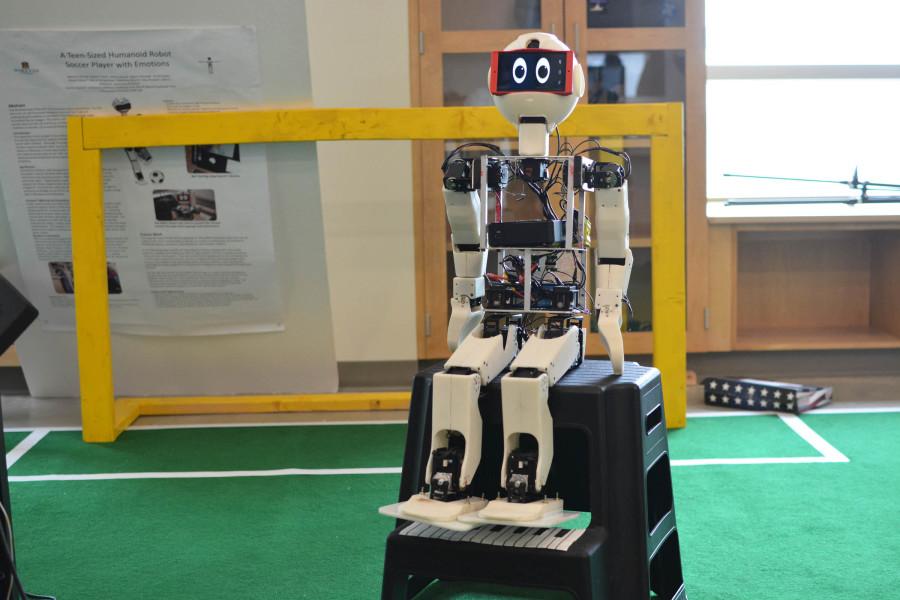Marquette’s Social Innovation Initiative, Champions for Change, seeks to help make social justice-based ventures become a reality with four new projects underway.
The initiative, envisioned by its faculty advisor Jeff Snell, gained support from the Brady Corporation to fund the projects, which includes efforts from students, faculty and others outside Marquette.
The first project involves humanoid robots. Andrew Williams, the John P. Raynor, S.J., Distinguished Chair in Electrical and Computer Engineering, started the project in the fall of 2012 and through it created the Humanoid Engineering & Intelligent Robotics Lab.
“Being a Champion for Change means finding a societal or global problem to solve that you are passionate about, and apply whatever knowledge, talents, or gifts to help solve it,” Williams said in an email.
Students and faculty in the lab build humanoid robots designed to accomplish a variety of tasks. The first, ROSIE, was designed by Williams as a toy and teaching tool for kids to promote health and fitness.
ROSIE helped start the lab that now has students building other robots with parts from 3D printers. Two graduate students and 14 undergraduates work with Williams on these robots and are trying to assemble a team for RoboCup 2014, a robotic soccer competition following the World Cup this summer in Brazil.
Lars Olson, director of the Human Powered Nebulizer project, decided to use his engineering skills to help those with asthma in third-world countries without easy access to electricity.
Resembling the gears of a bicycle, the HPN uses a hand crank for power and then provides respiratory treatment through liquefied medicine. So far, 35 units were distributed, 15 were sent to El Salvador and 20 to Guatemala.
“The main inspiration for students in projects like this is the Jesuit mission of being women and men for others,” Olson said. “Also, by walking with the poor, MU engineers were able see how they could be a part of their lives and live for good.”
Another project, H2OSCORE, is an application focusing on limiting water usage. H2OSCORE tracks the amount of water used in homes and college campuses. Then it tells if people are using too much water and gives a score to compare against others using the app.
McGee Young, an associate professor of political science and H2OSCORE’s developer, was named one of Milwaukee Business Journal’s 40 Under 40 for the project.
But not all of the projects involve technology. For example, Ryan Twaddle, a sophomore in the College of Arts & Sciences, submitted his Countries Without Cavities proposal last year and won the 2012 MU Social Innovation Design Contest. His project focuses on developing preventative measures and treatment techniques to provide dental healthcare to those who cannot afford it all over the world with a focus on the greater Milwaukee area.
“Often times we easily jump on a plane and take aid to other countries – which is important – but I believe that we must take care of our neighbors before we move on to a different community,” Twaddle said. “The most important part of Countries Without Cavities is that the change starts with the people in the community who want to provide care for one another.”
Twaddle said the purpose of the Champions for Change initiative is to highlight the work of students and faculty in the community in the community.
“I hope students and faculty at Marquette see the projects that each of the champions are working on and either reach out to learn how they can be a part of the solution or brainstorm ways to solve a problem they see in our community,” Twaddle added.



